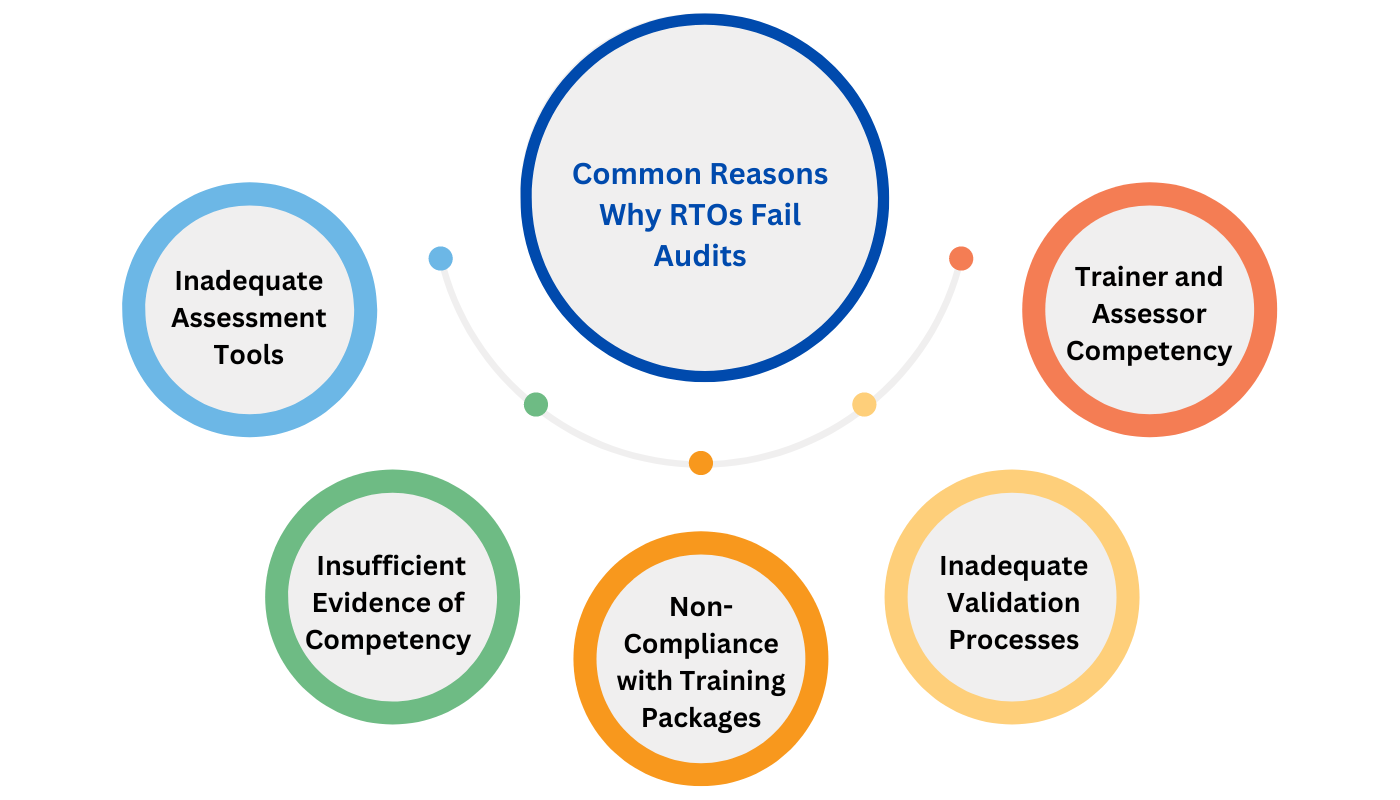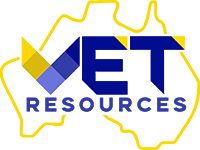Running an RTO is a challenging yet rewarding task. Ensuring compliance with ASQA standards is critical for the success and credibility of your RTO. However, many RTOs face challenges during audits, particularly related to assessment practices. In this blog post, we’ll explore common reasons why RTOs fail audits and provide actionable tips to help you achieve and maintain compliance.
The Journey of an RTO: From Audit Failures to Compliance Success
Meet Sarah, the RTO Manager
Sarah is the manager of a mid-sized RTO. She is dedicated to providing top-quality education and training. However, her RTO recently failed an ASQA audit due to issues with their assessment practices. Sarah was frustrated and worried about the future of her RTO. She knew that understanding why they failed and learning how to fix it was crucial for their success.
Common Reasons Why RTOs Fail Audits

- Inadequate Assessment Tools
- The Problem: Sarah’s RTO was using outdated assessment tools that didn’t fully meet the required standards.
- The Solution: Sarah realised that they needed well-designed assessment tools that are valid, reliable, flexible, and fair. She decided to invest in new tools that align with the unit of competency requirements.
- Insufficient Evidence of Competency
- The Problem: During the audit, it became clear that there wasn’t enough evidence to support the assessment decisions.
- The Solution: Sarah implemented a system to collect comprehensive evidence demonstrating the learner’s competency. This included using a combination of direct, indirect, and supplementary evidence.
- Non-Compliance with Training Packages
- The Problem: Some of the assessments were not fully aligned with the current training package requirements.
- The Solution: Sarah set up a process to regularly review and update assessment tools to ensure they meet the latest training package requirements.
- Inadequate Validation Processes
- The Problem: The RTO lacked a systematic approach to validating their assessment tools and outcomes.
- The Solution: Sarah introduced a robust validation process, involving industry experts to review and validate their assessment practices and tools regularly.
- Trainer and Assessor Competency
- The Problem: Not all trainers and assessors had the required qualifications or up-to-date industry experience.
- The Solution: Sarah ensured that all trainers and assessors were adequately qualified and had current industry experience. She also provided ongoing professional development opportunities.
How Sarah Turned Things Around

- Developing Comprehensive Assessment Tools
Sarah invested in high-quality, compliant assessment tools that were regularly updated to meet current standards. This ensured that their assessments covered all elements, performance criteria, and required knowledge and skills.
- Implementing Thorough Record-Keeping Practices
She established detailed record-keeping practices for all assessment activities, including evidence collected, assessment decisions, and feedback provided. Sarah used a reliable system to store and retrieve assessment records easily.
- Regularly Validating Assessment Practices
Sarah scheduled regular validation sessions with industry experts to review and improve their assessment tools and practices. They documented the outcomes of these sessions and implemented the recommended improvements.
- Ensuring Continuous Professional Development
She provided ongoing training and professional development opportunities for her trainers and assessors. Sarah encouraged participation in industry events, workshops, and networking opportunities to keep skills and knowledge current.
- Conducting Internal Audits
Sarah regularly conducted internal audits to identify and address potential compliance issues before external audits. She used the findings from these audits to improve their assessment practices and processes.
The Happy Ending
With these changes, Sarah’s RTO not only passed the next ASQA audit but also established a reputation for excellence in training and assessment. They were now confident in their compliance practices and proud of their achievements.
About Us: VET Resources is dedicated to providing top-quality training resources that ensure compliance and excellence for RTOs. We understand the challenges faced by RTO managers and are here to support you every step of the way.
Disclaimer:
The information presented on the VET Resources blog is for general guidance only. While we strive for accuracy, we cannot guarantee the completeness or timeliness of the information. VET Resources is not responsible for any errors or omissions, or for the results obtained from the use of this information. Always consult a professional for advice tailored to your circumstances.





